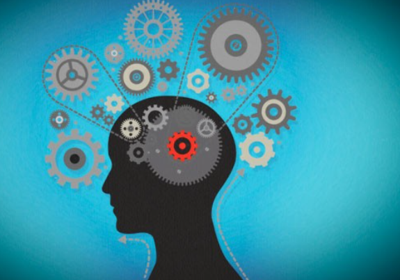
Creating actual change in disability support isn't done through grand movements—it is achieved in everyday, considered activities. After more than a decade in the industry of supporting people with disabilities as a behaviour support practitioner, I've witnessed the difference that can be made from small changes in approach to an individual's life. Informed by actual evidence and tested through practice, this evidence-based book presents proven strategies used by families, support workers, and teachers to support independence, build communication skills, and create long-lasting positive outcomes in everyday life for individuals with a disability.
Understanding Behaviour as Communication: An Evidence-Based Approach
All behaviour is communication, especially for those who may struggle to communicate verbally. Again and again, studies prove that problem behaviour is most often a reflection of unmet needs, sensory overload, or environmental stressors. As professionals, we've arrived at asking ourselves, "What is this person trying to say?" rather than "How do we eliminate this behaviour?" This shift in value towards positive behaviour support has revolutionised disability care, with a focus on proactive strategies upholding individual dignity in conjunction with addressing root causes of distress.
The Science Behind Daily Routines and Emotional Regulation
Neuroscience research has demonstrated structured routines reduce cortisol levels considerably and improve emotional regulation in individuals with disabilities. Consistency in daily routine provides neurological safety, and the brain can focus on learning and development rather than ongoing adaptation. Working with individuals from different disability populations, I've found the effectiveness of well-designed morning and evening routines to be powerful tools for creating independence. These sequences don't need complexity—they require consistency, personal relevance, and integration with individual goals and preferences.
Building Collaborative Support Teams: Best Practices from the Field
Successful disability support involves concerted collaboration across individuals, families, therapists, support workers, and educators. Meta-analyses of behaviour support outcomes all reveal that collaborative strategies yield better outcomes than single interventions. Good teams have good communication habits, consistent strategies across settings, and frequent joint review of progress. This person-centred collaboration maintains the support as culturally appropriate, goal-focused, and responsive to changing demands while preserving the individual's control and decision-making capacity throughout.
Goal Strategies That Promote Actual Independence
Self-determination theory research verifies that important, personally selected goals enhance motivation and participation in individuals with disabilities. Effective goal-setting entails the division of greater hopes into workable milestones, marking incremental successes, and an emphasis on building capacity rather than managing deficits. In my clinical practice, I've witnessed goals from independent travel use to enhanced emotional expression become attainable when accompanied by evidence-based practices, environmental supports, and ongoing support from informed support teams.
Environmental Design for Maximal Support Outcome
Environmental psychology studies show that physical environments have a powerful effect on behaviour, attention, and emotional control. Adaptive changes to physical spaces based on sensory needs—such as suitable lighting, noise reduction, visual layout, and specific calm areas—can avoid difficult behaviours before they become challenging. Top disability service agencies today use principles of universal design that accommodate multiple sensory needs. These evidence-based environmental modifications boost participation, minimise stress reactions, and provide the circumstances under which people with disabilities can express their full potential and attain their individual goals.
Ongoing Improvement Through Data-Informed Support Planning
Best practice behaviour support involves continuous assessment and refinement based on clear data and stakeholder input. Longitudinal research shows that responsive, adaptive support plans have better outcomes than rigid, static methods. Skilled practitioners routinely gather data on strategy efficacy, review teams, and adjust interventions in response to new research findings and individual progress. This continuous improvement mindset recognises that effective support evolves with the person's changing needs, developmental stages, and life circumstances while maintaining evidence-based foundations.
Implementing Person-Centred Change
Transforming disability support begins with recognising that small, consistent actions create profound change when guided by evidence-based practices and genuine respect for individual autonomy. Through collaborative teamwork, environmental awareness, meaningful goal-setting, and continuous learning, we can create supportive conditions where people with disabilities thrive independently. This person-centred approach, grounded in current research and clinical experience, empowers individuals to achieve their aspirations while building stronger, more inclusive communities that value neurodiversity and human potential.


(0) comments
We welcome your comments
Log In
Post a comment as Guest
Keep it Clean. Please avoid obscene, vulgar, lewd, racist or sexually-oriented language.
PLEASE TURN OFF YOUR CAPS LOCK.
Don't Threaten. Threats of harming another person will not be tolerated.
Be Truthful. Don't knowingly lie about anyone or anything.
Be Nice. No racism, sexism or any sort of -ism that is degrading to another person.
Be Proactive. Use the 'Report' link on each comment to let us know of abusive posts.
Share with Us. We'd love to hear eyewitness accounts, the history behind an article.